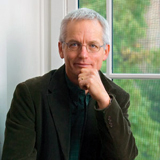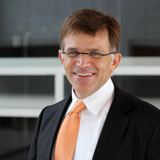| |
Both Professor Peterson and Professor Shandley have spent considerable time in
Berlin, and we have both witnessed the radical changes in the city. We have seen the city
before and after the Wall, and we have also watched the transformation as the government
moved from sleepy Bonn to its old and new capital. Most important, we have seen how
Berlin has become self-consciously multi-ethnic with all the problems and possibilities that
arise in a cosmopolitan environment.
 |
Brent Peterson, who is Professor of German and Chair of the German Department
at Lawrence University, Appleton, Wisconsin, started out as a specialist in nineteenthcentury
questions of ethnic identity, particularly, the way in which he could use narratives
produced by and for German-Americans to map the way this minority adjusted its identity to
the cultural reality of the United States. He then shifted his focus to nineteenth-century
Germany, where he asked similar questions about what it meant to be German as the region
gradually coalesced into a nation state. Frequent stays in Berlin and student interest in more
contemporary topics led him to ask similar questions about today’s Germany, and he soon
realized that there was no more interesting or important topic, at least for him, than the
question posed by the presence of so many migrants in a society that still regarded itself as
homogeneous. |
 |
Robert Shandley is Professor of German and Film Studies and Head of the Department of International Studies
program at Texas A&M University. He has written books on immediate postwar German
film, Hollywood films in Europe in the 1950s, and, most recently, American television
military comedy during the Vietnam War. His work centers mostly on how film and
television are used to negotiate cultural, historical, and political debates. He has been an
active observer of how television and film are employed in current German questions of
ethnic inclusion and exclusion. |
|
|
|


